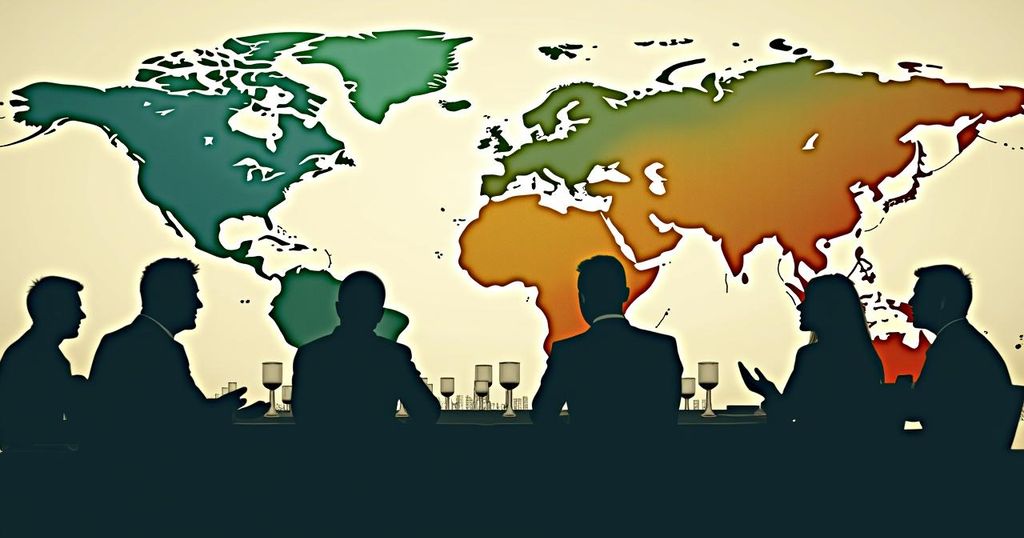The COP29 climate conference is preparing for a significant debate regarding financial responsibilities for climate aid, particularly between wealthy nations and emerging economies. With developing countries requesting trillions of dollars, discussions are underway about expanding the donor base beyond traditional contributors. China, among others, is under pressure to participate in financing climate action, though many developing countries resist any attempts to lessen obligations placed upon developed nations. A significant negotiations outcome for adequate funding remains uncertain as COP29 looms.
As the COP29 climate conference approaches, a critical debate is emerging regarding the financial responsibilities of wealthy nations versus developing countries in addressing climate change. Developing nations require significant financial aid—estimated in the trillions of dollars—but questions arise over who should shoulder this burden. Currently, developed nations such as the United States, the European Union, Canada, and Japan contribute approximately $100 billion annually; however, there is mounting pressure for major emerging economies like China, which is the largest polluter today, to contribute as well. Those advocating for a broader donor base argue that the original criteria for funding, established in 1992, are outdated and should be revised to include emerging economies capable of contributing financially. China has faced scrutiny, particularly since it has evolved into a major economy over the decades. With claims that the contributors’ list lacks modern relevance, there is contention about whether developing nations, which have experienced increased economic success and pollution levels, should participate in funding. Suggestions have been made to assess a country’s capacity based on income, purchasing power, or emissions levels. However, many developing countries staunchly oppose any dilution of the obligations placed on developed nations, emphasizing that the Paris Agreement mandates that these countries, historically responsible for global warming, must assume the financial commitments. Notably, a consensus or significant figure outlining the required financial aid has yet to be achieved, with some developing nations advocating for over $1 trillion annually. There is ongoing dialogue about the United States and China potentially softening their positions. For instance, while China contributes to climate finance on a voluntary basis, these funds are not formally recognized in international discussions, complicating negotiations. Overall, while there is reluctance to formalize additional donors at COP29, voluntary contributions may emerge to support collective climate efforts.
The UN COP29 climate conference is set to delve deep into the pressing issue of financial assistance for climate action in developing countries, known to be disproportionately affected by climate change. Amidst this backdrop, there is a heightened call for a reevaluation of the responsibility distribution between wealthy and developing nations, particularly focusing on the evolving economic statuses of different countries. The convention established in 1992, which originally delineated specific donor nations, has attracted criticism for being outdated, as emerging economies are now contributing to global emissions and economic growth. Developing nations are advocating for their financial needs to be prioritized in any agreements reached at COP29.
In conclusion, the upcoming COP29 climate conference is poised to confront vital questions about the funding responsibilities for climate aid. As emerging economies like China face scrutiny to contribute alongside traditional donors, the conference participants must navigate the complexities of historical obligations, contemporary economic realities, and the urgent need for climate funding for the most vulnerable nations. The negotiations will ultimately determine whether a more inclusive approach to donor contributions can be achieved to address the mounting climate crisis.
Original Source: www.france24.com







